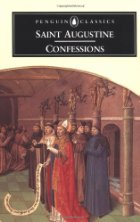The Last and Greatest Church Father: St. Augustine, Part 1
 During the past two millennia, Christianity has produced many prominent thinkers, but Augustine of Hippo (AD 354–430) could be considered the most influential outside of the New Testament. His significant impact, especially on Western Christianity, is tied directly to his profound work as a theologian, philosopher, apologist, and church bishop.
During the past two millennia, Christianity has produced many prominent thinkers, but Augustine of Hippo (AD 354–430) could be considered the most influential outside of the New Testament. His significant impact, especially on Western Christianity, is tied directly to his profound work as a theologian, philosopher, apologist, and church bishop.
Augustine’s theological and philosophical views influenced other Roman Catholic thinkers such as St. Anselm, St. Thomas Aquinas, and Blaise Pascal, as well as Protestant Reformation thinkers Martin Luther, John Calvin, and Thomas Cranmer. Augustine’s surviving works comprise just over five million words and several of his writings are included among the great literary classics of the Western world. Though he lived in the latter stages of the ancient Roman Empire (late antiquity), many of his ideas—theological, philosophical, ethical, historical, and even political—remain prominent today.
The purpose of this 12-part historical profile is to acquaint readers with one of Western civilization’s most original and outstanding thinkers (himself a devoted follower of Christ) by surveying his extraordinary life and accomplishments and then touching on some of Augustine’s major theological, philosophical, and apologetics ideas.1
A versatile and intuitive Christian apologist, Augustine was an untiring and tenacious defender of catholic2 Christianity. His doctrinal and apologetics writings in large part insured that ancient Christianity remained a biblical faith of divine rescue and did not degenerate into a humanistic religion of self-help salvation. More than anyone else’s in the first thousand years of the Christian church, Augustine’s efforts were responsible for setting forth a systematic understanding of the Christian world-and-life view. According to his contemporary Jerome (a biblical scholar), as an apologist Augustine was universally admired in the church and, more importantly, hated by all the heretics. Augustine viewed this enmity from the enemies of orthodox Christianity as a badge of honor.3
But Augustine’s journey to sincere belief in Jesus Christ was not an easy one.
Continued next week
Endnotes
- Concerning Augustine’s life and theological controversies, see Peter Brown, Augustine of Hippo (Berkeley: University of California, 1969) and Gerald Bonner, St. Augustine of Hippo (Norwich, Canterbury, 1986); concerning Augustine’s philosophical ideas, see Frederick Copleston, A History of Philosophy, vol. 2 (New York: Doubleday, 1993), 40–90, and Henry Chadwick, Augustine (Oxford: Oxford University, 1986).
- When lower-cased, the word “catholic” refers to the universal or orthodox Christian church.
- J. Stephen Lang, “Influential Antagonists,” Christian History 67 (2000): 35.





